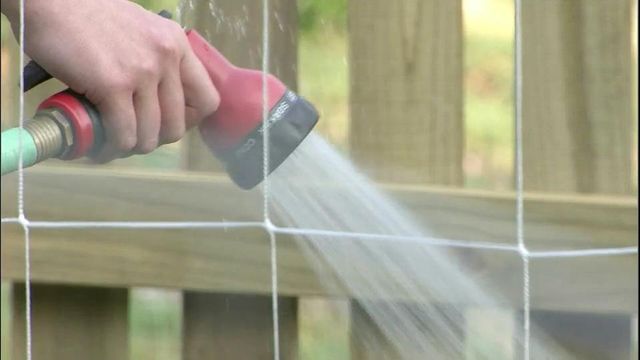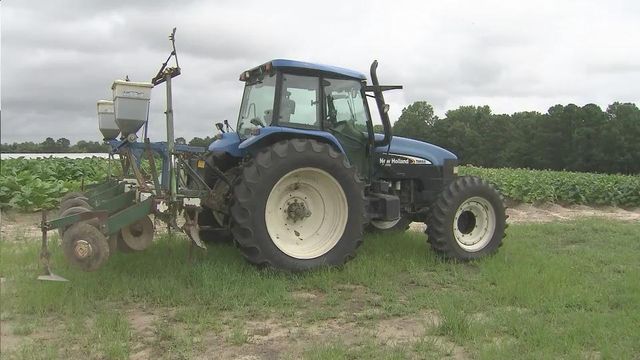Abundant rainfall worries NC farmers, water departments
A deluge of rain in the last several weeks has area farmers struggling to salvage what they can from water-logged fields and consumers waiting to see whether it will have an impact on their grocery bills.
Posted — Updated“I've never been through this before,” said Jimmy McKenzie, a third-generation farmer. “I've been through wet years, but I've never been through a wet June like this.”
More than 10 inches of rain has fallen across central North Carolina since the start of June, which is 7 inches more than average.
McKenzie said he can't get equipment onto his field and is paying more for labor to get the job done. The rain has also drowned the roots of his tobacco, making it thin and yellow.
“Thin tobacco don't have no flavor,” he said. “We need some warm weather. We need some dry weather.”
It's not just tobacco that’s suffering from the abundant rainfall. Officials with the Johnston County Cooperative Extension Service say the ground is too wet to plant soybeans or harvest wheat.
“Without doing that in a timely manner, it really reduces the yield potential of the crop,” said Bryant Spivey, the extension office director.
State Agriculture Commissioner Steve Troxler said farmers across North Carolina are hurting.
“Name a region of the state, and this rainfall has had some type of impact on crops there,” he said. “Statewide, more than 30 percent of the wheat crop still hasn’t been harvested, and the rain has slowed the planting of soybeans and sweet potatoes.”
Troxler said his department has received reports from farmers in central and eastern counties who have had cotton and tobacco “drowned” by the recent rain. In western counties, corn and vegetables have had too much water, and the blackberry harvest is slower than normal.
Spivey and Troxler said smaller harvests push up prices, although it’s too soon to tell what will happen.
McKenzie said he’s hoping to save some of his wheat, and he hasn’t given up on his tobacco.
“Tobacco is a crop that's good for coming back,” he said. “You don't never give up on it until it’s over with.”
The City of Raleigh said the rainfall, combined with increasing conservation efforts and a down economy, have meant less revenue trickling in to the Public Utilities Department, resulting in several rate hikes in recent years.
"The council has done what is required to kind of adjust the rates as we go to keep the business model intact," said John Carman, the city's public utilities director.
He said the city sells roughly the same volume of water as it did in 2005 – despite gaining about 97,000 people in its service area.
"We are in a slow decline in per capita usage, with an increase in population," Carman said.
• Credits
Copyright 2024 by Capitol Broadcasting Company. All rights reserved. This material may not be published, broadcast, rewritten or redistributed.






